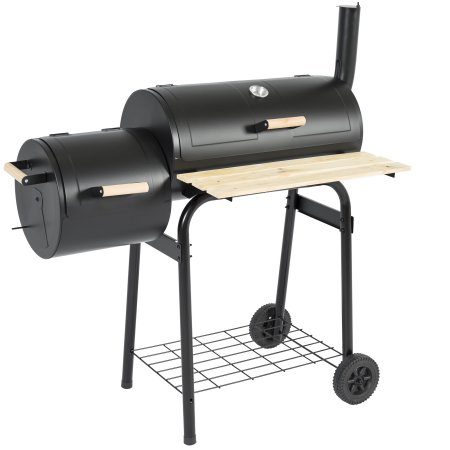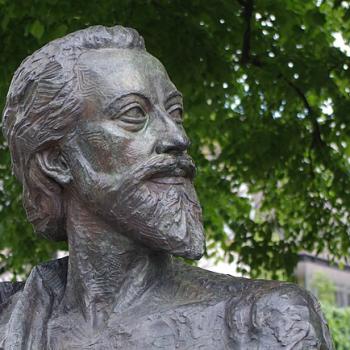One of the many things I delight in in reading Zhuangzi is how one his stories pointing to wisdom features a butcher. Meat is, legitimately, a complex thing for those of us on a path that acknowledges our profound interconnectedness.
Of course, the same thing can be said about life in general. And, about our spiritual lives in particular.
I’ve been caught up in some conversation with friends about preparation of Zen teachers. And, in pursuing those conversations two things have captured my attention.
The first is that in worrying about, or wanting, or advocating that the broadest number of people might achieve the title “Zen teacher” or at least “Zen priest,” as has been the sticking point of some of these conversations, that the actual purpose of the Zen project itself seems often to get lost.
Let’s be clear. The project of Zen is awakening. It is not about becoming a Zen teacher. It is not even about becoming a Zen priest. The big problem as I see it for Zen in the West is that “graduation,” the sense that one has “succeeded” has come to mean “received dharma transmission.” Now that opens a whole can of worms. Several cans. There’s the question of what dharma transmission really is. Which I will return to in a moment. The other is confusing becoming a teacher and walking the path of the wise heart.
We’re all called to that path of the wise heart. Only some of us for complex reasons are pulled into the ways of teaching. And it is unfortunate that here in the West we’ve collapsed finding our way into the path fully with being made a teacher. Or, as a near proximity, a priest.
In Buddhism ordination has been a path of renunciation, with some clear requirements both in the preparation for and in the living into. In Japan with a system no longer requiring celibacy a major variation on the theme of ordination has emerged. Actually several. But they’ve not been clear. And, now in the West we’re struggling with what that actually is, returning to those question of preparation for and living into.
Again, on the inter webs the persistent anxiety is that everyone, or something close to everyone be able to do it should they want. Whatever the circumstances of their lives. It is tied up with that desire to graduate. And it is mixed up with other things, wounds about being good enough, or whole.
With these two things boundaries are seen as oppressive. And, of course, they can be. I admire the desire. I’m not so impressed with many of the solutions. Most of which have to do with abrogating any real expectations. Instead the idea for some is that so long as someone gets dharma transmission all is fine. The assumption here is that those two words put together actually mean something.
Dharma transmission is a Zen thing. Really it’s a Chinese thing. Indian Buddhism makes links through schools of thought, but doesn’t have a concept of an individual transmitting authority to an individual. In Zen it is a byproduct of the Chinese asking the new Buddhists, who is your family? Who is your father? Family, lineage, that’s a big Chinese thing. So, the emerging Zen school, which really was about the practices of meditation and encountering awakening made up a story.
It’s a lovely story that starts with the Buddha twirling a flower and one of his disciples getting the point and smiling, and who then later suggests to his disciple to cut off that inner debate, and who also then gets the point, and so on through a list that is a rough compiling of prominent Indian Buddhists in sort of a chronological line to China. After five semi-mythic semi-historic Chinese teachers in succession something actual and historical happens. From the eighth century there really is something called dharma transmission.
What exactly it is supposed to be is never fully clear. There is some highflown language of mind to mind and eyebrows tangling. And pretty clearly it is meant to be a statement about one teacher seeing a teacher in one of his or her students. In China it is something that only tangentially touches the institutions, which continue to be carried forward by the monastic order that the Buddha actually did establish.
Generally it was an acknowledgement of mastery of the way. And it was granted to very few people among a much larger community of practitioners. I, myself have no doubt that people were on more than a few occasions acknowledged as fitting into lineage after the fact – they were noticed later, and then crowbarred into the lineages. My takeaway of this original sense of dharma transmission is that is is a lovely and powerful symbol. But that it isn’t to be taken too tightly, and never terribly literally.
And then it goes to Japan. And everything goes sideways. In the Rinzai schools, while the ordination model shifts to what would evolve into a nonmonastic, or rather a temporary monastic training model and then a priestly function, dharma transmission is reserved for a very small subset among the priests (and rarely but occasionally lay teachers). But, they are not like Christian bishops and seen as necessary to keep the institution going. They are there as exemplars and to make sure the quality of training and the expected deep insight of the small number of senior teachers remains continuously high. At least in theory.
But the big school was Soto. And they collapsed dharma transmission into ordination as a full priest. A quick search of the inter webs tells me there are approximately 14,000 Soto temples in Japan. While there is currently a decline in the number of priests, today about 11,000 have an incumbent. Every one of these incumbents has dharma transmission. In fact in institutional Soto, dharma transmission is simply a first step within the levels of hierarchy. If everyone has it, it has no particularly significance. The spiritual component marking one seeing into the heart of the matter, has, in my estimation, been lost.
There have been people who’ve seen this, and there are attempts at restoring the deeper matters held up in that symbol. For me a critical element has been the reclamation of koan introspection as part of that, something that has been central to my own spiritual life. And witnessing the first full generation of convert Zen here in the West I and I know many others can identify a handful of people who clearly have something going. Call them saints. Call them masters. But they exist.
So this loose sense of dharma transmission is not a problem. Rather it is not a problem if you have a genuine discipline, a path of awakening. And that has not been lost. Although I worry about some who are appointed its guardians. Zen means meditation. Zen’s gift for those on a path of awakening is the preservation and presentation of those disciplines. Foremost among them is shikantaza, or, just sitting, also sometimes called silent illumination. Right up with this is koan introspection. Together with these things is monastic formation, where one spends a shorter or longer period in strict monastic training and then carries the spirit of that discipline forward through a life of liturgy and meditation, whether in monastery or temple. Usually there is some form of combination of these three possibilities. Personally I find the secret of it all that first thing, just sitting.
And, yes, with spiritual direction. And dharma transmission is the hoped for symbol of that guidance. For that, think of food, of butchers, of cooks. There are all sorts of schools of cookery. The best cook of all might be self taught. But, in general, mostly, usually, good chefs come from good schools. And, nothing is guaranteed.
All this said, I find myself going back to that use of a butcher in a spiritual story by Zhuangzi. And, for me, I find myself thinking of cooks, and more of grilling. In particular grilling a fine piece of meat, a rib eye steak, for instance. Or, a cheap cut of meat, like a brisket.
If you have something of the first grade like that rib eye, you throw a little salt and pepper on it and you throw it on a grill set as high as you can, you sear it, maybe let it char a tiny bit at the edges, then you flip it, and within a few minutes, a very few minutes, you’re done. At the end you have something delicious.
Okay, delicious if you’re not disgusted by the thoughts of where it comes from. But, bear with me. This metaphor is useful.
Most of us are not that fine cut of meat. Let’s be honest, for whatever reasons, and there are going to be a lot of them, we’re not the expensive cut. We’re that cheap cut. We’re that brisket, gristly and tough. But, here’s the good news. You take that cut of meat give it a dry rub, let it rest a bit, then apply a low heat to it, maybe throw in some smoke, and let it go on for hours and hours. In that low slow time something magical happens. (Okay. With the same caveat for the vegetarian or vegan…)
So, let me suggest that in our spiritual lives, for the most part, for most of us, low and slow is the way to go. Learn a practice. Learn to sit down, to shut up, and to pay attention. Cook. Low. Slow. Sit as close to every day as you can. Hit the retreats. As best you can. If your condition in life allows it, consider that monastic experience. It can be magic.
Worry less about priests and teachers. Cooks are important. And we don’t all need to be one. Rather think about the great project. Think of your broken heart, and its healing. Think about the fact something wonderful is being offered us. We have a way opened up.
Do this. Just sit, and return, and just sit some more. Talk to a teacher now and again. Then we may well find the wonderful thing. Because it turns out in the project of awakening, the doing is the finding.
And that slow and low, that constant return, that is the whole thing. Don’t get distracted. That slow and low, and that constant return. That’s the whole thing.
Zen’s real gift.
Like fine barbecue.













